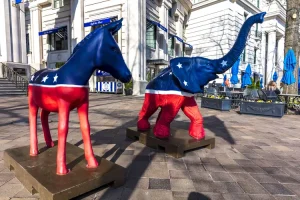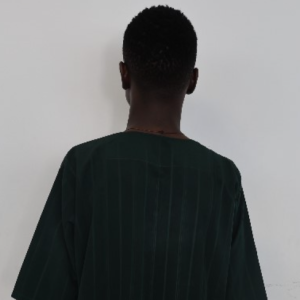Anambra State High Court Adjourns Case Against Prominent Native Doctors to April 11, 2025
On April 4, 2025, the Anambra State High Court, presided over by Honourable Justice Jude Obiorah, adjourned the highly anticipated criminal cases involving three well-known native doctors—Akwa Okuko, Eke Hit, and Onye Eze Jesus—until April 11, 2025. This adjournment was made in light of the need to allow proper legal procedures, including the service and arraignment of the accused, and to ensure that their legal rights are upheld.
The case involves charges of conspiracy, kidnapping, and the preparation of Oke-ite, a traditional concoction that has been alleged to be used in illegal and criminal activities. The accused individuals, Onyebuchi Okocha (known as Onyeze Jesus), Chidozie Nwangwu (Akwa Okuko), and Ekene Igboekweze (Eke Hit), are prominent figures in their communities and have been accused of playing significant roles in a network of criminal activities that allegedly exploit traditional practices for unlawful purposes.
YOU MAY READ
Popular Anambra Native Doctor , Akwa Okuko Arrested, Denies Oké-Ite Charm Practice, Detained for Further Investigation by Anambra State Government
During the hearing, which took place in a packed courtroom with a significant public presence, the defendants were formally arraigned, and the charges against them were read aloud. The accusations, which have drawn considerable attention, suggest that the defendants have been involved in a series of criminal operations, including the abduction of individuals and the use of traditional practices for nefarious purposes.
The court session on April 4 was marked by significant interest, as the public, legal practitioners, and media outlets followed the developments closely. Justice Obiorah made the decision to adjourn the case until April 11, 2025, to provide adequate time for the accused to be formally served with all relevant court documents and to allow for the proper preparation of their defense.
The decision to adjourn was met with mixed reactions from both the defense and the prosecution. Barrister Remigus Okoli, who represents the defense team, took the opportunity to address the media following the court proceedings. Okoli vehemently denied the allegations against the defendants, arguing that the state government had orchestrated a move to have the defendants remanded without giving them the due process required by law. He emphasized the importance of respecting the constitutional rights of the accused, particularly their right to adequate time for defense preparation.
“We have been assured that the law will be on our side,” Barrister Okoli stated, reiterating his position that the defense would vigorously advocate for the rights of the accused and ensure that due process is followed throughout the trial. “This case is not just about the defendants. It is about the rule of law, which must be upheld for all individuals, regardless of the accusations against them.”
Despite Okoli’s comments, there was no response from the prosecution team, which is led by F.C. Okeke, as they were unavailable for comment following the session. The prosecution’s stance on the adjournment and the charges remains to be fully clarified, and it is expected that further statements will be issued as the trial progresses.
YOU MAY READ
Social Media, Materialism, and the Rise of Spiritual Entrepreneurs: A Call for Youths to Focus on Skill, Hard Work, and Authentic Success
The case against these three prominent native doctors is not just about criminal charges; it is a reflection of the broader concerns regarding the misuse of traditional practices for criminal gain. In recent years, there has been growing awareness of the role that some traditional and cultural practices play in perpetuating illegal activities, such as human trafficking, ritual killings, and other forms of organized crime. The Anambra State Government has taken a strong stance against these criminal practices, as part of its broader efforts to combat violence and insecurity in the region.
Governor Charles Chukwuma Soludo has been vocal about the need to address such criminal activities, highlighting the dangers posed by individuals who exploit cultural beliefs for illegal purposes. The Anambra State Government has consistently worked to strengthen the judicial system and ensure that offenders are swiftly brought to justice. The high-profile nature of this case, involving such prominent figures, has only intensified the scrutiny of the judicial process.
YOU MAY READ
Mazi Nnamdi Kanu’s Lawyer Barrister Ifeanyi Ejiofor Calls For The Immediate And Unconditional Release Of Alias Akwa Okuko Tiwara Aki
The Anambra State Government has emphasized its commitment to ensuring justice is served while maintaining a fair and transparent legal process. The case forms part of the government’s broader initiative to combat criminal activities, particularly those involving the abuse of traditional practices for unlawful purposes. The government’s approach focuses not only on prosecuting those involved in these criminal activities but also on reinforcing the judiciary’s role in maintaining public safety and order.
Anambra’s focus on ensuring the rule of law is paramount in cases involving traditional practices that have been misused. The state is keen on protecting its citizens and ensuring that cultural practices do not become vehicles for criminality. This commitment is reflected in the efforts of the government to address the challenges posed by such criminal activities, which have raised concerns among local communities and the broader public.
In his remarks, Barrister Okoli also emphasized the importance of ensuring that justice is not only done but is seen to be done. He called for the fair and impartial application of the law, highlighting the need for a transparent and just legal process. The case is seen as a critical test for the Anambra State Government’s commitment to the rule of law and the protection of citizens’ rights.
The trial has captured the attention of residents and stakeholders across Anambra State, many of whom are watching closely as the case unfolds. The public’s interest stems from the fact that the defendants are well-known figures in their communities, and their alleged involvement in criminal activities has raised serious concerns about the abuse of traditional practices.
YOU MAY READ
Man Arrested at Anambra Motor Park While Trying to Flee with Stolen 5-Year-Old Child
Some local residents have expressed outrage at the allegations, particularly the suggestion that traditional practices, such as the preparation of Oke-ite, have been used in a manner that threatens the safety and well-being of the community. Oke-ite is a traditional concoction often associated with spiritual or medicinal uses, but its alleged involvement in criminal activities, including kidnapping and ritualistic practices, has caused significant alarm.
The case has also brought attention to the need for greater oversight and regulation of traditional practices in the state. Many people in the region have called for more stringent laws and measures to prevent the misuse of cultural practices for criminal gain. As the trial progresses, it is expected that discussions surrounding the role of traditional practices in modern society will continue to evolve.
As the case moves toward its next hearing on April 11, 2025, there are several key developments to watch for. The upcoming session is expected to focus on the proper service of documents and further legal proceedings. The defense team will likely continue to assert that the accused have not been given sufficient time or legal resources to prepare their case, while the prosecution will aim to demonstrate the validity of the charges and the seriousness of the allegations.
The trial’s outcome could have significant implications for the broader issue of traditional practices in Anambra and across Nigeria. If the defendants are found guilty, it could send a strong message about the state’s commitment to eradicating the misuse of cultural practices for criminal purposes. On the other hand, if the defendants are acquitted, it may lead to further debates regarding the legal and cultural implications of the case.
The legal community and residents of Anambra State will undoubtedly be keeping a close watch on the proceedings, as the trial represents an important moment in the state’s ongoing efforts to address crime and uphold the rule of law. The coming weeks will likely provide more clarity on the charges, the defense strategies, and the overall impact of the case on the state’s legal and cultural landscape.
As the case continues, the Anambra State Government remains committed to ensuring that justice is served, while also fostering a judicial environment that is fair, transparent, and respectful of the rights of all individuals involved. The outcome of this case, like many others, will help shape the future of Anambra’s legal system and its approach to addressing criminal activities that threaten public safety and societal harmony.





